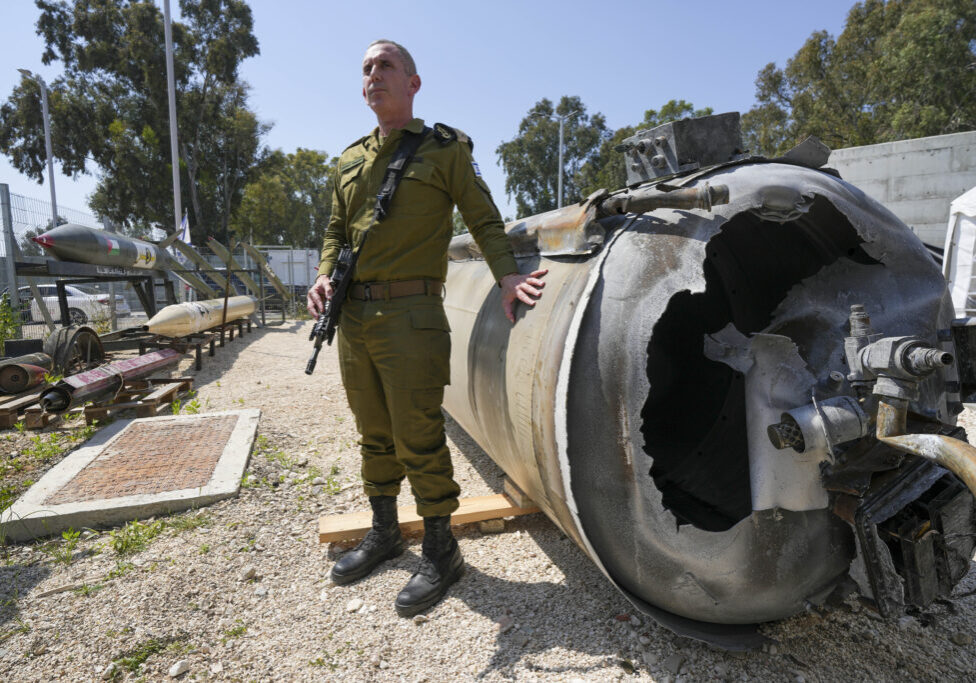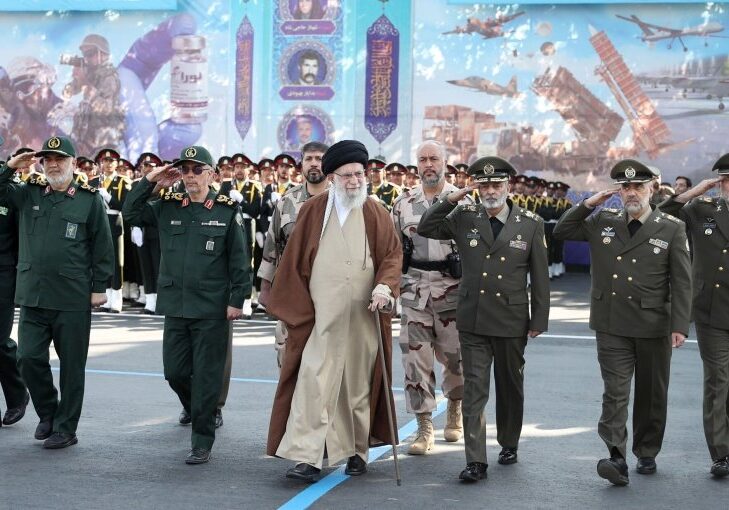Australia/Israel Review
The Fallout of the ’06 Conflict
Sep 1, 2006 | Amotz Asa-El
By Amotz Asa-El
 |
| Israel’s north and Ehud Olmert’s leadership have both taken heavy hits |
The lull that finally settled over northern Israel and southern Lebanon as the UN-brokered ceasefire went into effect on August 14 has misled none of its many protagonists. Almost everyone agrees that the vicious fighting touched off by the July 12 killings by Hezbollah gunmen of eight Israelis and the capturing of two, along with a rocket barrage into northern Israel, has ended inconclusively and is prone to sooner or later resume.
In the Arab world there is widespread enthusiasm about Hezbollah’s survival of Israel’s counterattack, and a tendency to ignore its heavy losses in personnel, materiel and turf. In Europe, the original desire to join a strong international force that would effectively wrest south Lebanon from Hezbollah has given way to a new reluctance. In Washington, there is concern that Hezbollah’s current rhetoric will further embolden Islamist terrorists across the world. And at the UN, with Lebanon already saying it won’t get down to the business of disarming Hezbollah even in the south, there are no illusions concerning the durability of the ceasefire.
In Israel, the war has bred a new strategic consensus that its major enemy is no longer the Palestinians but Iran, that the cause at stake was not Israel’s size but its very existence, and that preparations for a new round, possibly in a different arena, must commence immediately. Similarly, Israelis from across the political spectrum now share a hope that the international community will now better understand that Israel’s enemies are the enemies of the democratic world , and that facing up to them is in its interests.
Still, the month-long violence has condemned Israel’s senior generals and politicians to a kind of turmoil which none of them had anticipated, and some of them may also not survive.
Having lost in one month 117 soldiers and 43 civilians, while the ordinarily serene Galilee was pounded by some 4,000 rockets that hit 6,000 homes, displaced 300,000 people and forced another million into bomb shelters, Israelis are wondering how all this sits with what the politicians had promised as they waged war, and what the generals delivered in conducting it. The pervasive sense of disappointment and the quest for introspection and accountability are in some ways reminiscent of those that followed the ‘73 war and eventually generated a political earthquake.
The most immediate focus of the upheaval has been the IDF, and more specifically its arguable over-reliance on air power.
What began with efficient raids on Hezbollah’s long-range missile launchers and a devastating attack on the Islamist militia’s Beirut headquarters – which was off-limits for ordinary Lebanese, including the military – quickly proved insufficient in terms of the war’s broader aims, as they had been stated by Prime Minister Ehud Olmert and Defence Minister Amir Peretz. Hezbollah’s leadership survived and functioned, its short-range missiles remained abundant and operational, its anti-tank missiles proved more potent than initially assumed, and its troops, though at the end of the day beaten in every encounter with Israeli infantry, still never surrendered as units.
 |
| Israeli troops performed admirably, but the campaign was clumsy and improvised |
Many in Israel, both within and without the IDF, feel the fighting would have turned out differently had its assault included from the onset elaborate ground activity, whether in the form of commando attacks in Hezbollah’s rear or in the form of a massive frontal invasion.
Whether justified or not, the decisive role assigned to warplanes in this operation is attributable to the Israeli army’s current stewardship by Lt.-Gen. Dan Halutz, who was appointed last year by Ariel Sharon as the first career pilot to become the IDF’s chief of staff.
The 58-year-old Halutz, one of the Israeli Air Force’s bravest and most-accomplished pilots, is criticised not only for what ground forces generals consider an over-reliance on air power, but also for the flaws that emerged in the ground forces’ performance, particularly a failure to adequately train reserve units, occasionally poor logistics behind enemy lines, and what some see as a lack of imaginative battle plans.
Beyond the strictly military critique of his management of the war, Halutz has also admitted a newspaper report that several hours after the kidnappings that started the war he took the time to sell, by a telephone order, some $27,000 worth of stocks. Though legal, this revelation has been portrayed by the media as emblematic of a moral aloofness and professional distraction that may have impacted the IDF’s performance.
While the military leadership is under attack for alleged failures of performance, the politicians are being charged by many with failures of merit. Olmert’s and Peretz’s apparent failure to adequately scrutinise the military’s plans before hastily demanding of it what it could not deliver then and there, is making some question not only the two’s personal judgment and responsibility, but also the entire political system’s quality.
Peretz, a union leader and former provincial mayor with no ministerial experience, is now seen even by many within his own Labor Party as a failure in his position. For instance, Science Minister Ofir Pines-Paz joined the call for the establishment of a legal commission of inquiry that would look into the war’s management, a slap in his party leader’s face and clearly part of an effort to eventually remove Peretz. Considering that even prior to this war Peretz had antagonised some senior Labor figures, Peretz may yet learn that his acceptance of the Defence portfolio last spring was, for him, one gamble too many.
Peretz’s critics had claimed already before the war that Olmert’s offer of the Defence portfolio was a honey trap that Labor had to avoid in order to stick to its election promise to restore Israel’s social safety net. Now Peretz is embattled not only by the war’s unsatisfactory results, but also by its costs, which he more than anyone else is assigned with financing, a task that can only be accomplished at the expense of his social agenda.
Olmert’s situation is, if anything, even more embattled. First, as Prime Minister his responsibility for the war’s conduct is even larger than Halutz’s and Peretz’s. Then, as the one who appointed Peretz, he is now expected to explain a move that his critics see as compromising the national interest for partisan considerations. Olmert will have to reconstruct the decision-making process that led to his apparently poorly planned and thought out charge on Hezbollah. What kind of discussions preceded the decisions, how many people participated, was there any dissent and if so why was it ignored?
All this befalls Olmert even as the main election ticket on which he ran is being largely discounted, even by his own party colleagues. With Israel’s unilateral retreats from Gaza and Lebanon having generated massive Islamist attacks within Israel’s internationally recognised borders, very few people in Israel are prepared to continue with plans for unilateralist experiments in the West Bank, as Olmert promised to do during the March election that crowned him Prime Minister.
As if to complete the siege on him, Olmert’s immediate circle is now also up to its neck in corruption scandals. Justice Minister Haim Ramon, Knesset Defence and Foreign Affairs Committee Chairman Tzahi Hanegbi and Coalition Chairman Avigdor Yitzhaki are respectively being investigated for sexual misconduct, inappropriate political appointments and involvement in a tax-evasion conspiracy. Moreover, the State Comptroller is probing allegations concerning an ostensibly illegal real-estate deal involving Olmert himself, and the Prime Minister is compelled to simultaneously fend off charges concerning his wartime leadership, pre-war caution and personal morality.
Faced with these challenges, Olmert and Peretz have adopted the same tactic, which is to create a mechanism for review and apparent soul searching, but without mandate for assigning personal responsibility. Peretz has set up a committee of retired generals and assigned it with exploring the Defence system’s failures. Apparently mistrusting even that framework, he expressly ordered it to avoid discussing individuals. Olmert is seeking a similar mechanism with which to probe the civilian system’s malfunctions.
However, among the thousands of reserve soldiers returning from the front, many demand the establishment of a legal commission of inquiry headed by a Supreme Court justice, a framework whose recommendations are legally binding, and which, following the 1973 and 1982 wars, led to the removals of chiefs of staff and defence ministers and indirectly also ended two prime ministers’ terms in office.
Olmert is trying to shift public attention to his ambitious plans for the Galilee’s reconstruction, hoping the media’s current obsession with postwar wrath, corruption scandals and apparent ideological dead-end at which the Prime Minister has arrived somehow wanes. Whether or not this wish is fulfilled will now depend on the public’s willingness to join the growing demand by discharged soldiers, hungry politicians, and assorted NGOs, like the widely respected Movement for Quality Government, to let an independent commission probe the war.
Many Israeli pundits do not expect the Olmert government to survive the next few months. It can end its days in two ways: it can be voted out of office by the Knesset, and it can resign on its own volition. The latter seems unlikely for now, considering Olmert’s defiance even in the face of growing criticism. The former also remains unlikely, as long as his current partners are not enticed by their constituents to bolt his coalition. If that part of the situation is to change, it would likely begin with Labor’s replacement of Peretz with a successor who would seek to seize leadership of the political and military overhaul that the public is currently demanding, and which Olmert hopes to deliver himself.
However, if violence up north resumes soon, as many suspect it might, the most likely political beneficiaries of the ongoing mayhem would be the secular Right, led by Likud Chairman Benjamin Netanyahu and National Union leader Avigdor Lieberman. Netanyahu, who resigned as Finance Minister insisting that unilateral retreats will only draw in Islamists who then would summarily use their new fiefdoms to attack Israel, now feels vindicated. Many average Israelis, having just been through a post-disengagement nightmare for which no one had prepared them, are likely to concur.
![]()
Tags: Israel






